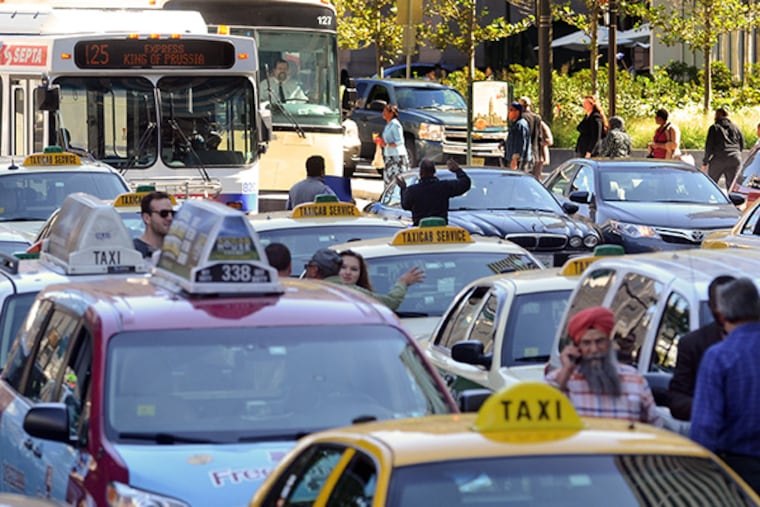Phila. cabs must be better, accessible, PPA says
Acknowledging the popularity of ride-sharing services such as Uber and Lyft, the Philadelphia Parking Authority said it plans to require better taxicab service in the city.

Acknowledging the popularity of ride-sharing services such as Uber and Lyft, the Philadelphia Parking Authority said it plans to require better taxicab service in the city.
New rules proposed this week would require that vehicles brought into service as taxis could have no more than 500 miles on the odometer, down from the current 135,000 miles. And all new medallion cabs would be required to be wheelchair-accessible.
The new rules, if approved by the state Independent Regulatory Review Commission, likely would not take effect until late this year, though change might take many years, since existing cabs could remain on the road until they were eight years old or had 250,000 miles on the odometer.
But the PPA used blunt language to warn cab owners that things must change.
"The authority continues to experience an unwillingness on the part of taxicab owners in Philadelphia to, voluntarily, upgrade and improve the quality of taxicabs," the PPA said. "The riding public continues to endure service in the oldest and most worn vehicles that a taxicab owner can legally get on the road."
Ride-sharing services such as Uber and Lyft, which connect drivers in private cars to passengers who summon a ride on a smart-phone app, have disrupted local taxi operations despite being outlawed in Philadelphia by the PPA.
The PPA said the "illegal service providers" have been drawn to "the obvious dearth in affordable quality common carrier transportation in Philadelphia."
". . . Not surprisingly, the public has responded favorably to cleaner and better vehicles, more friendly drivers, and the hassle-free use of credit cards."
The PPA said it had "no expectation that the taxicab industry will voluntarily work to save itself," and the authority said it may seek new state legislation "to bring about the level of taxicab service demanded by today's customers."
The PPA invited "all interested parties" to comment on the proposed regulations within 30 days (PPA General Counsel, 701 Market St., Suite 5400, Philadelphia 19106). If approved, the rules would take effect 30 days later.
A PPA spokesman said the process could take until October.